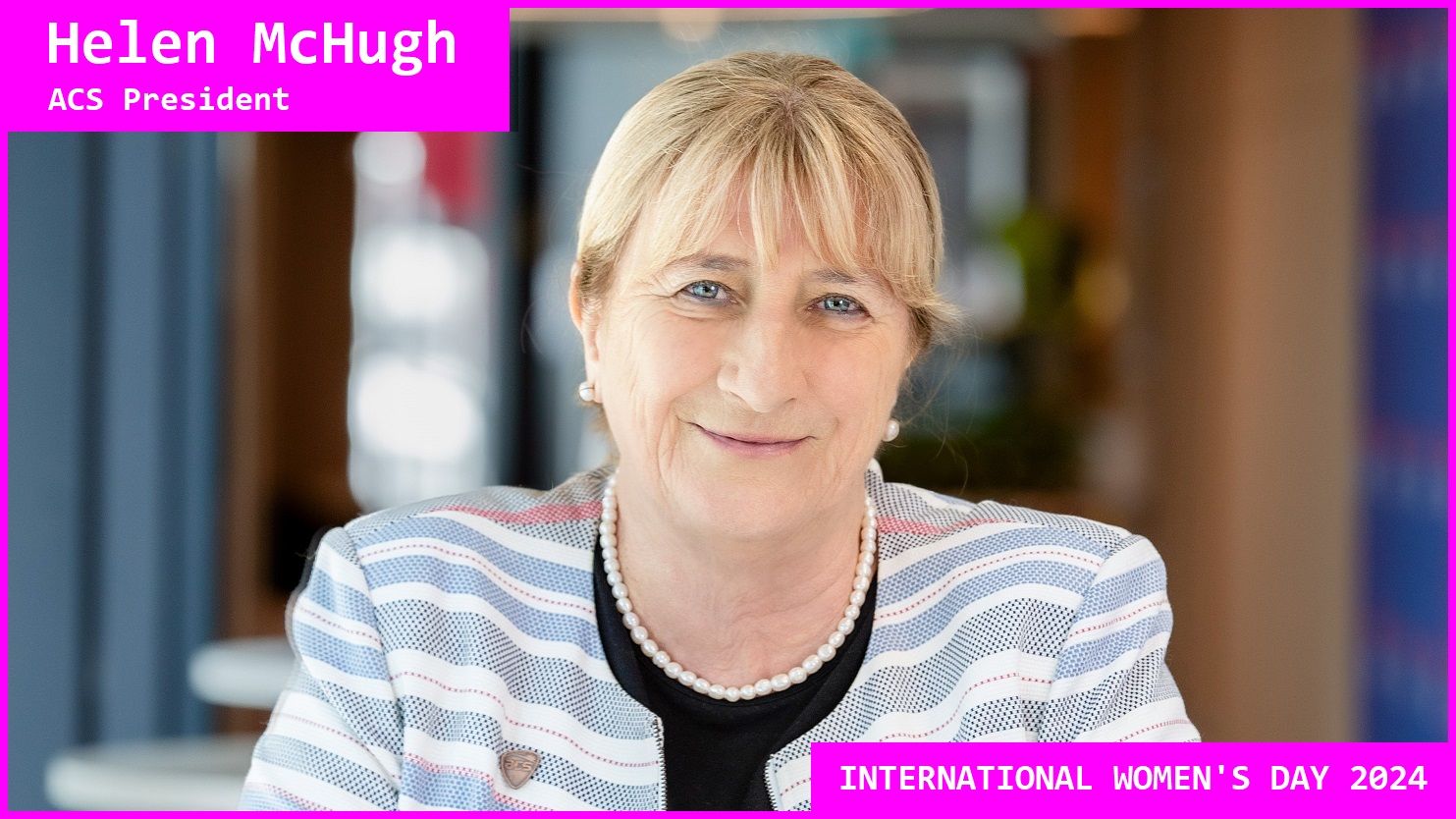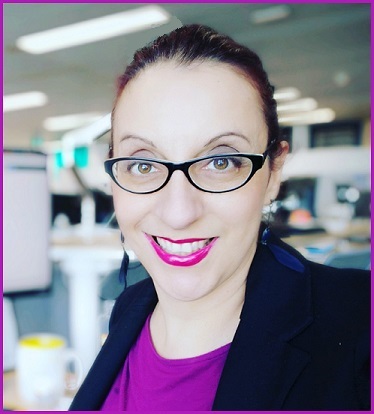Ahead of International Women’s Day (IWD) on 8 March, Information Age speaks with only our second female President at ACS, Helen McHugh.
Helen discusses what drove her to study computing, her female role models growing up, why IT is a great career for women, and what ACS can be doing to help more women into tech careers.
This year’s IWD theme, as designated by the United Nation’s entity UN Women, is ‘Invest in women, accelerate progress.’
UN Women is dedicated to gender equality and the empowerment of women around the world.
What does International Women’s Day mean to you?
It’s our annual day of putting a spotlight on women! We beaver away – we’re trying to get our visibility under the hood for the other 364 days. But this is the one day that puts a spotlight on us. It's our day. We all get together and we go, here we are! And there are great events where we all come together, and we all share, socialise and enjoy.
I follow the great Brenda Aynsley as the second female ACS President and I’m excited to see so many strong women in leading roles at ACS, including (chief growth officer) Siobhan O’Sullivan and (vice president – Community Boards) Jo Stewart-Rattray.
How did you get into tech?
In my era, if you worked in the public sector and you married, you had to quit your job. I went to a Catholic school and as a Catholic girl, you’re either going to be a nun or a mother. And there was very limited encouragement about doing anything else. I was lazy but very bright and just scraped into Canberra Uni to study librarianship, which was all about data and information management and computational thinking. The librarian degree was very well-grounded and one of the units in first year was computing. So, I got into the computing class and went, “Oh, I think I know what I want to do!”
My dad and my beloved grandmother had a bet that I wouldn't make it through first year. I said, ‘bring it on’. Now I have a double degree in librarianship and computing.
You’ve previously said your father was a great inspiration for you, can you tell us more about him and his influence on you?
My dad was one of the first two programmers in Australia. He worked with Trevor Pearcey, so I grew up with computers. As a little four-year-old, we would go and get Daddy from Sydney Uni because he'd been up all night with the computer trying to get it to run – they used to break down a lot. Sydney Uni at that time had radio physics on one floor in the big sandstone building, with all the mega scientists. I grew up in this environment, going to barbecues and dinners and, hanging out with the families with all these scientists and their kids.
Who were your female role models growing up?
Ita Buttrose and Maggie Tabberer. I watched them as they built their careers, they had their kids – they were single mothers like me.
My paternal grandmother was also my role model. She was one of the first girls – in around 1910 – to go to uni.
How did you go about getting back into the industry after having children?
I got married, and my military husband was posted. So, I went, too. They had a rule in the public service that if you were posted, you didn’t have to resign – you just went on leave without pay. So, I spent five years on leave without pay. I was still on the books. I had my two children and after my husband and I divorced, I went back to work and I stayed there. And I knew that was a really good safety net. If I was out in private enterprise, I would have been in a whole lot more trouble.
When I came back and said I wanted to work part time, they winced for a moment, but they did it. I worked there part-time for eight years. I’m sure if they did an analysis, they’d find part-time working mothers are highly productive. It’s because you’re appreciative that you are allowed to work part-time, and you're in the zone doing stuff just pumping it out on all levels.
Is IT a good career for women?
Absolutely, because it's organised, it is very logical – there's no fluff and bubble. You write the code, you run the system, you plug everything in, and it all works or it doesn't work. But it has that lovely human element of working with business areas so that you listen to people, their needs, and then you go, ’okay, we can build this for you’. It's about the listening. Women are really good at that. It's recognised that women make great project managers, because we are wired to manage multiple things at the same time.
How do we sell IT better to women?
We have to stop the stigma that you’ve got to be good at maths. No, you don't. You have to be reasonable at maths. It's about logic, and organised thinking. So that stigma is rubbish. We need to get girls into tech and keep them. Tech is not just a ‘boy thing’ – we need to blow that thinking up. And tech pays a lot of money! We also have to market tech better. Tech is very female- and mother-friendly.
What can ACS do to promote women in tech?
For ACS, it’s about championing and promoting women. We have great female role models in the organisation and as the umbrella organisation for the tech profession we have a responsibility to promote them.
I see ACS’ role as bringing together programs and events to promote IT careers to girls and women. There’s a view this is a boys’ industry when it’s really one of the most female friendly sectors where you can balance family, life and work.
Despite the image of our industry being filled with male maths geeks, the tech industry really is more about creative thinking and problem solving. There’s a huge human element as well. We have to dispel some of those myths. A good Business Analyst can earn $150 an hour as a contractor and the skills of a mother – or father – are valuable to understanding business needs.
One of my frustrations has been the Digital Pulse report consistently showing the proportion of women in tech bouncing around 30 percent. Over the nine years we’ve been doing the survey, that proportion has stayed pretty well the same – so something isn’t working.
A good starting point to fixing this is the Pathway to Diversity in STEM Review that Cicada Innovations’ Sally-Anne Williams did for the Federal government earlier this year. It laid out some great recommendations for governments and industry to address this and I think we should have a good look at those.
In my role as President, I’d like to bring my project management skills to help ACS be the best it can be while being a role model myself for other women. I’d also like to make sure ACS is supporting anybody from a diverse background to have a go in what really is one of the most exciting careers you can embark on.
You’ve had a very long and rewarding career in IT. What do you enjoy most about working in IT?
Project rescue. That’s where you get everyone in the room and go make magic. And everyone goes, “Oh, wow!” Project rescue is when a project has gone off the rails, it’s not going well at all, and they bring in a team to try and turn it around. I noticed that the bigger the broken project, the more women in the room. They didn’t like it when I would point that out! Turning around a project rescue won me respect in the business. I was always top achieving and getting bonuses. I was happy, I was earning money, I was doing interesting projects.
These days I help in advising small not-for-profits. I work, but for free! It’s all about giving back.










